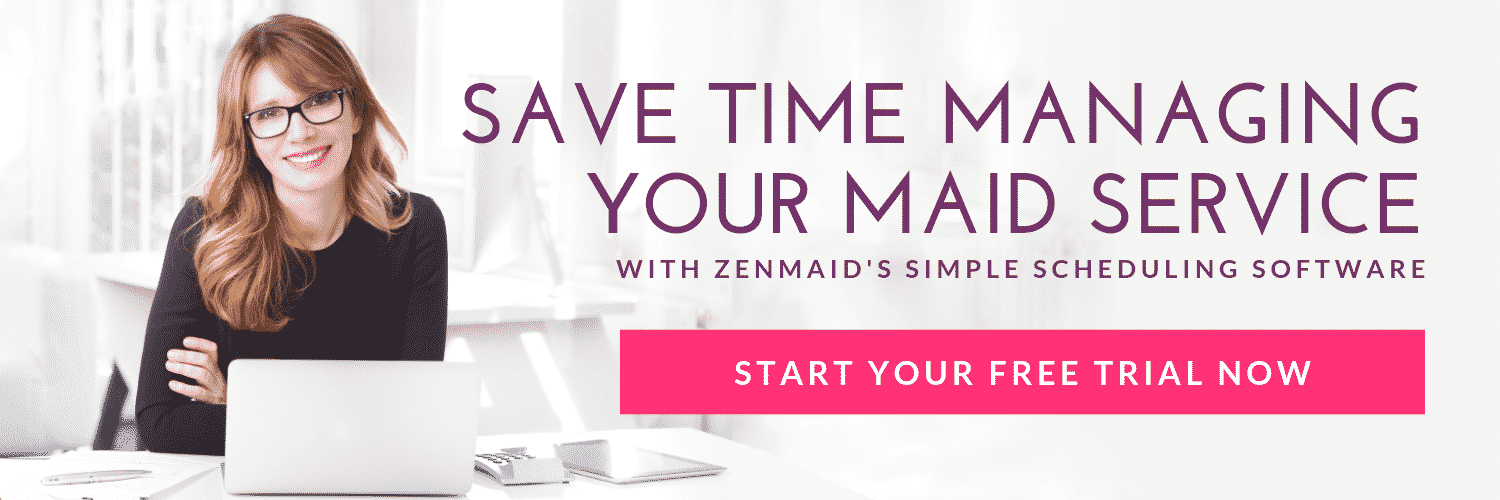Long, leisurely lunches. Vacations anytime you want. Did you start your maid service believing that being your own boss would mean having more free time? It probably wasn’t long before you realized that running a business usually means having much less of it.
Chris Schwab discovered this soon after launching ThinkMaids in Washington, D.C. in 2016. In less than 90 days, he was earning $20,000 a month. Instead of having time to travel and visit his girlfriend who lived 13 time zones away, he was working long days to keep up with ThinkMaid’s growth.
He needed help, but couldn’t hire full-time staff yet. So instead, he trained virtual assistants (VA) to run his cleaning business in his place. That proved so successful that in March 2017, Chris went fully remote and moved from Washington D.C. to Tokyo.
Today, Chris lives and works (fewer hours) from homes in Tokyo and London. He also runs a second business, InoVa Local, where he teaches other cleaning service owners how to break free of day-to-day operations.
Read on to learn Chris’ one-year roadmap for setting up your business to operate without you. The plan is divided into four quarters, each lasting three months. Follow it closely, and by the end of the year, you’ll be ready to pack your bags and go.
Table of contents
Quarter 1 – Overhaul your systems
During the first quarter, you’ll put solid systems in place. If your business can’t run without you in the following key areas, you’ll always be tied to the daily operation of your business.
Here are the minimum systems you’ll need:
Reputation management: Whether it’s automatic, manual or a mix of both, a reputation management system will help you get customer reviews and testimonials regularly. Use that social proof in your marketing to show you provide a high-quality service. Some options include: NiceJob, Yelp or Google reviews.
Paid and free marketing: You can be the best at customer retention, but if you’re not constantly getting new leads, your business can’t grow. Set up a simple paid system like Google Ads. Pair it with a free system like posting regularly on Next Door. Use that social network to engage with neighbors and reach out to moving companies about a referral partnership.
Sales: Get software that tracks leads and follows up automatically through text, email or phone. After clients have their cleaning, your system should put them in a client retention campaign that encourages repeat business.
Hiring funnel: To help your office team grow, you’ll need a full system for hiring new employees.
Operations: Have clear guidelines for how your team handles phone calls, emails and tasks that come in throughout the day. Include team management, office admin and an office-wide productivity system.
While not as essential as the previous systems, Chris recommends adding the following during this quarter:
Personal productivity system: This includes a to-do list and the way you’ll prioritize tasks. Check out Chris’ 2020 Maid Summit talk all about this.
Bookkeeping: Even if you hire an accountant to handle bookkeeping, you should also have a simple bookkeeping system for keeping track of expenses.
Emergency plans: Have a detailed plan about what everyone’s responsibilities are during different kinds of emergencies.
Quarter 2 – Build your office team and delegate tasks
Delegating effectively is the focus of the second quarter. Once you’ve hired a VA, don’t just hand them a list of jobs to do. It’s important to delegate tasks slowly because your VA will need time to learn your particular systems and processes. Move too fast and you risk burning them out.
Start with one task at a time. Wait until they’re able to do it well before adding another. This will put them on the path to mastering the work. It will also help you judge how they perform each task so you can adjust your training, if necessary.
Have a VA start with phone calls, followed by the three tasks you hate doing the most.
Assign all other tasks a letter from A (most critical) to E (least critical). As you add more jobs to your VA’s plate, start with the A jobs and move down the list to the E jobs.
Other ways to make training easier:
Be realistic with your expectations. For example, give your team ample time to respond to requests or your messages. Don’t expect them to accomplish more than what’s reasonable.
Consider giving them a “f-up fund.” In order for your team to feel independent, give them the freedom to make some errors without consequences. An “f-up fund” is a modest budget for fixing mistakes like rescheduling missed appointments. They don’t have to check with you before using the money or report what they’ve spent it on.
Quarter 3 – Preparations and practice
This quarter is about testing your team and the systems you’ve put in place.
Here are the key tasks for this quarter:
Practice periods: Your team will practice running the business without you for one day, one week and one month.
If they can get through a month with little interaction with you, operations run smoothly and revenue is increasing, you’re well on your way to leaving the business in their hands.
Train a backup: Vacations. Illnesses. Your VA will eventually miss a day or more of work. To prepare, train a backup to manage essential tasks. This person could be a team lead or lead cleaner who has some experience with office management or handling emergencies.
Plan on spending a month training the backup. They don’t have to be perfect, but they should be able to handle things like phones, team emergencies and responding to customers.
Establish a clear method of communication: Decide how you will communicate with your VAs when you’re not there. It’s easy to call or text when you’re in the same location or country, but things can get trickier when you’re not.
What technology will you use for daily or routine communication? How will you communicate if there’s an emergency? These are important things to consider.
If you’ll be out of the state or country, leave contact information for trusted family or friends who can be called if there’s an emergency.
Business health check: Review the key areas of your business – marketing, sales, operations, etc. – and rank them on a scale of one to 10. Work on improving the weakest areas before you leave.
At the end of these three months, you will have completed 90% of the prep work.
Quarter 4 – Final steps before going remote
You’re almost ready. Before you walk out the door, there are a few final steps to complete in the fourth quarter:
Give your team at least three-months notice. So if you haven’t already told them about your plans to go remote, do it by the beginning of this quarter.
Build a standard operating procedure (SOP) database for all the different tasks in your business. This includes hiring, emergency procedures and any templates that your team may need. Be very specific about the way you want things done. Your team will appreciate the clarity.
Secure your tech. Since you could be signing into your systems from anywhere in the world, invest in security, such as:
- A password manager like LastPass
- Cybersecurity insurance
- A virtual mailbox like Earth Class Mail that gives you access to your postal mail online
A final checklist before you become a remote or absentee business owner
Check your readiness one last time with the following list of requirements.
To become a remote or absentee business owner, you should have:
- Been running your company for at least six months
- Solid knowledge about how to run a cleaning company
- Experienced a variety of problems and emergencies at least once
- Earnings of at least $10,000 per month – preferably more than $15,000 per month with solid profit margins
- Implemented all of the minimum systems successfully
- Had conversations with your team about what everyone, including yourself, will handle
- A plan for communicating with your team in different situations
- An emergency plan
If you follow this roadmap and complete everything on the final checklist, this is the time to celebrate. You’re ready to enjoy the life of an absentee business owner.
About the presenter
Chris Schwab is the CEO and founder of ThinkMaids, a cleaning service, and InoVa Local, a virtual assistant company for service businesses and a 2021 Maid Summit Sponsor.
- How One Cleaning Tech Employee Becomes Irreplaceable
- What I Wish I Had in Place *Before* My First Nightmare Client
- The Divorced, Broke, and Fearless Journey to Six-Figure Vacation Rental Success
- How a 20-Year Cleaning Business *Drastically* Increased Revenue by Ditching Pen and Paper
- 8 Website Mistakes That Are Costing You Leads (And How to Fix Them Fast)

 Frustrated with your scheduling? Try the easiest-to-use calendar app, made by and for maid service owners.
Frustrated with your scheduling? Try the easiest-to-use calendar app, made by and for maid service owners.










